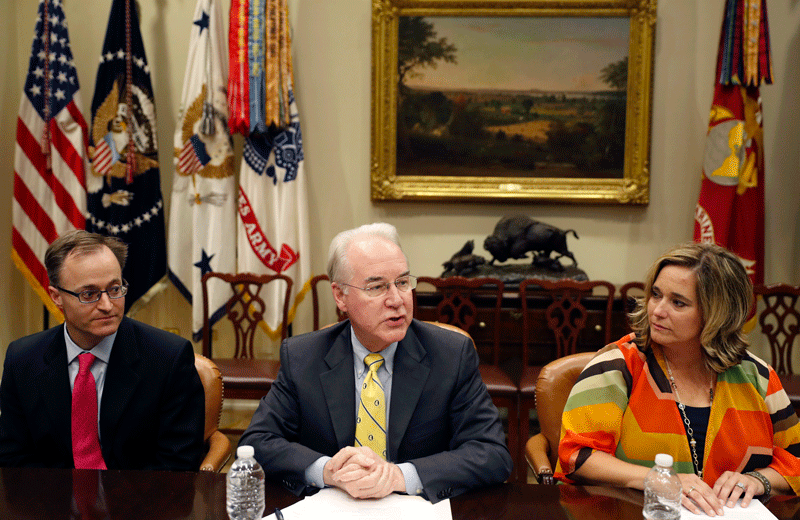
Senate to Vote on Health Care Reform
Once again, health care reform is dominating news headlines. This time, it’s because Senate Republicans have come up with a new health care bill, known as the Better Care Reconciliation Act, and are pushing for a vote on that bill as soon as this week.
Look back on the previous stories btw and Election Central has written about health care refrorm efforts:
- January 19, 2017–The End of “Obamacare”?
- March 15, 2017–Republicans Reveal New Healthcare Plan
- March 29, 2017–New Healthcare Plan Scrapped
- April 26, 2017–Health Care Replacement–Take Two
- May 12, 2017–Republican Health Care Replacement Bill Passes House
However, up until this point, much of the discussion and debate surrounding the new bill has taken place behind closed doors. In fact, the Senate has not held any public hearings on the bill. On Thursday, Senate Republicans released a “discussion draft” of the bill. Here is a brief summary:
What’s the Same?
Back in May, when the House passed its version of the health care reform bill, the Senate said they would deconstruct it, taking what they liked and discarding what they didn’t, to create a new bill. As it turns out, though, the Senate bill is very similar to the House bill. Under both bills, Medicaid expansion will be phased out, and how Medicaid is funded will be changed. Children will still be allowed to remain on their parents’ health insurance plan until age 26. However, states will be allowed to opt-out of coverage for pre-existing conditions and minimum insurance coverage. Under both versions of the bill, the wealthiest Americans will receive a tax cut, while roughly 23 million Americans are expected to lose their health care coverage.
What’s Different?
There are a few minor differences between the bills, however. The Senate bill’s tax credit system makes it so that older and poorer Americans aren’t penalized as harshly as they were under the House version of the bill. Under the Senate bill, Americans who let their health insurance lapse will also face a mandatory six-month waiting period before being allowed to purchase insurance again. Furthermore, under the Better Care Act, states will be able to request a waiver to get out of paying for essential health care needs, such as emergency services, maternity care, and mental health services.
What’s Next?
Republicans need 50 votes in order to pass the bill in the Senate. At the moment, it will be close. Several Republicans have already expressed reluctance about the bill and what it may mean for their constituents, and five have already stated that they will not vote for it as-is. President Trump reportedly said that he wanted the House version of the bill to do more to aid poor Americans, though he was not specific about what that should look like.
Democrats have vowed to fight the bill, though their options are limited. Because of the nature of the bill, they aren’t allowed to filibuster. Just voting against it won’t be enough, because they are the minority party. Activists hope that Senate Democrats will use every tool they can to battle the bill, which they see as attacking the poor, elderly, sick, and disabled in order to give tax cuts to the wealthy.
Even if the bill does pass the Senate, it still has a long way to go. The House also must pass the Senate version of the bill. If they don’t, then the two houses of Congress will have to work together to negotiate a third, compromise version. Once both houses agree on a version, then the bill will be sent to Trump’s desk to be signed into law. But no matter what happens with the Senate vote this week, it could still take until July for this to happen.


